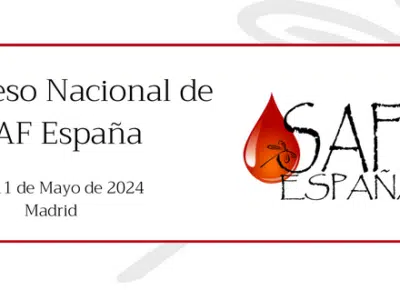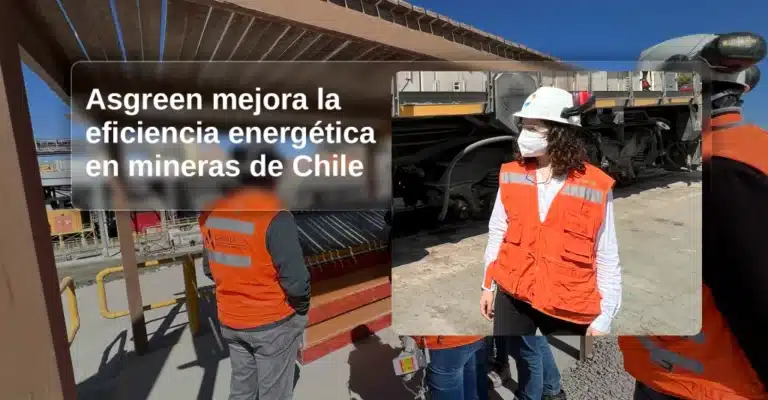The 2025: A Decisive Year for SAF Potential in Spain

The year 2025 is shaping up to be a crucial milestone in the development of Sustainable Aviation Fuel (SAF) in Spain. As the airline sector seeks to reduce its carbon footprint and align with global sustainability goals, the production of SAF emerges as a key solution. With the European Union’s commitment to increasing the use of sustainable fuels and the country’s potential due to its abundant natural resources, this period represents a unique opportunity. Advancements in infrastructure, regulatory frameworks, and investment will be fundamental in positioning Spain as a leader in the field of sustainable aviation fuel.
As the year 2025 approaches, the potential of Sustainable Aviation Fuel (SAF) in Spain presents itself as a key opportunity to transform the aviation industry and reduce its carbon footprint. With the aim of achieving a 6% use of SAF by 2030, this progress not only marks an environmental commitment but can also position Spain as a leader in the production of sustainable fuels for aviation at the European level.
Opportunities and challenges in SAF production
The production of SAF represents an exceptional opportunity to address the challenge of climate change in aviation. Establishing adequate infrastructure for its production may require significant investments, but it is essential to meet the goals set by the IATA to achieve net zero CO2 emissions by 2050. However, this process involves economic and regulatory challenges that must be identified and overcome.
Available resources in Spain
Spain, with its vast array of agricultural and livestock and forestry resources, is in a privileged position for SAF production. Clean energy initiatives such as solar, wind, and hydro are vital to ensuring a sustainable supply. The combination of strong production potential and commitment to the energy transition positions the country as a leader in the sustainable fuels industry compared to other EU countries.
The need for a stable regulatory framework
To advance SAF production, it is crucial to establish a regulatory framework that facilitates investment and innovation. Collaboration between the aviation sector, the energy sector, and public administration can lead to the creation of regulations that benefit the growth of SAF. Observing examples such as the Nordic countries, where regulations have fostered a conducive environment for investment, the urgency of implementing similar regulations in Spain becomes evident.
Economic impact of SAF in Spain
A recent report by PwC indicates that the sustainable fuels production sector will require an investment of approximately 22 billion euros in Spain, generating nearly 42 billion euros in the country’s GDP. The construction of production plants will contribute not only to job creation but will also boost the economy through the generation of sustainable long-term revenues.
The importance of collaboration between sectors
Cooperation between companies is essential to share resources, knowledge, and risks in a sector that needs capital to grow. Strategic alliances can be fundamental to extending the SAF market, committed to reducing more than 70% of CO2 emissions compared to the use of fossil kerosene. Raising public awareness about the benefits of SAF is also a necessary step to increase its acceptance and use in aviation.
Conclusions on the future of SAF in Spain
The year 2025 is shaping up to be a turning point in SAF production in Spain. Implementing effective policies and fostering collaboration at all levels will be crucial to achieving sustainability goals and positioning Spain at the forefront of sustainable aviation in Europe.
The year 2025 is emerging as a fundamental turning point for sustainable aviation in Spain, particularly regarding the production of Sustainable Aviation Fuel (SAF). This initiative arises in a critical context where the need to reduce the carbon footprint and adopt more responsible practices has become imperative for the airline sector. Spain’s ability to position itself as a leader in this area depends on various factors, including collaboration between the government, the industry, and the scientific community.
The implementation of adequate regulations and support for research and development is essential to incentivize SAF production. Establishing a favorable regulatory framework will attract significant investments necessary to develop infrastructure that facilitates the production and distribution of sustainable fuels. In this regard, the experience of other countries that have made notable advances in this field should serve as a reference for Spain, highlighting the importance of creating an ecosystem that fosters the growth of the SAF industry.
Furthermore, the European Union’s commitment to achieving ambitious emissions reduction targets provides a unique opportunity for Spain to leverage its natural resources and its infrastructure in renewable energies. The implementation of the ReFuelEU Aviation plan in the coming years will require fuel suppliers to incorporate a higher proportion of SAF, which in turn will stimulate demand and interest in this type of fuel.
In this context, raising public awareness and promoting sustainable practices in the aviation sector become essential. With the right support and shared responsibility from all stakeholders involved, 2025 could mark the beginning of a new era for aviation in Spain, driving a shift towards a more sustainable and economically viable future.




